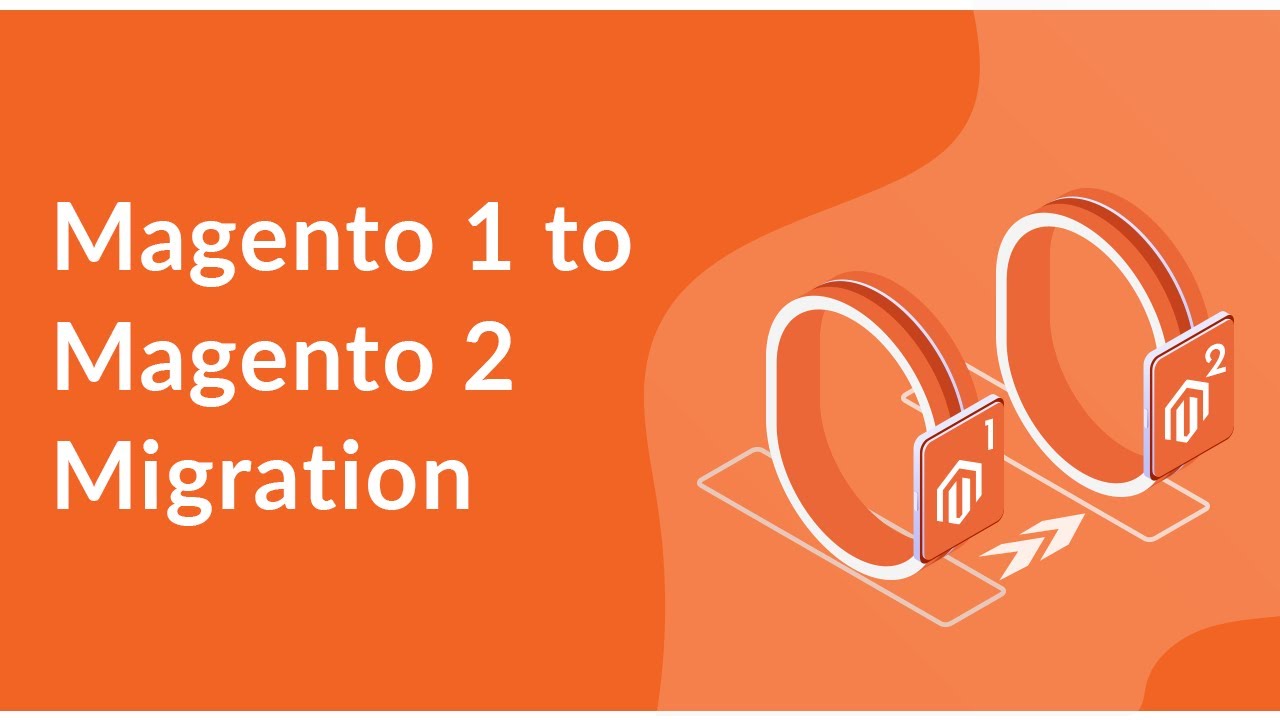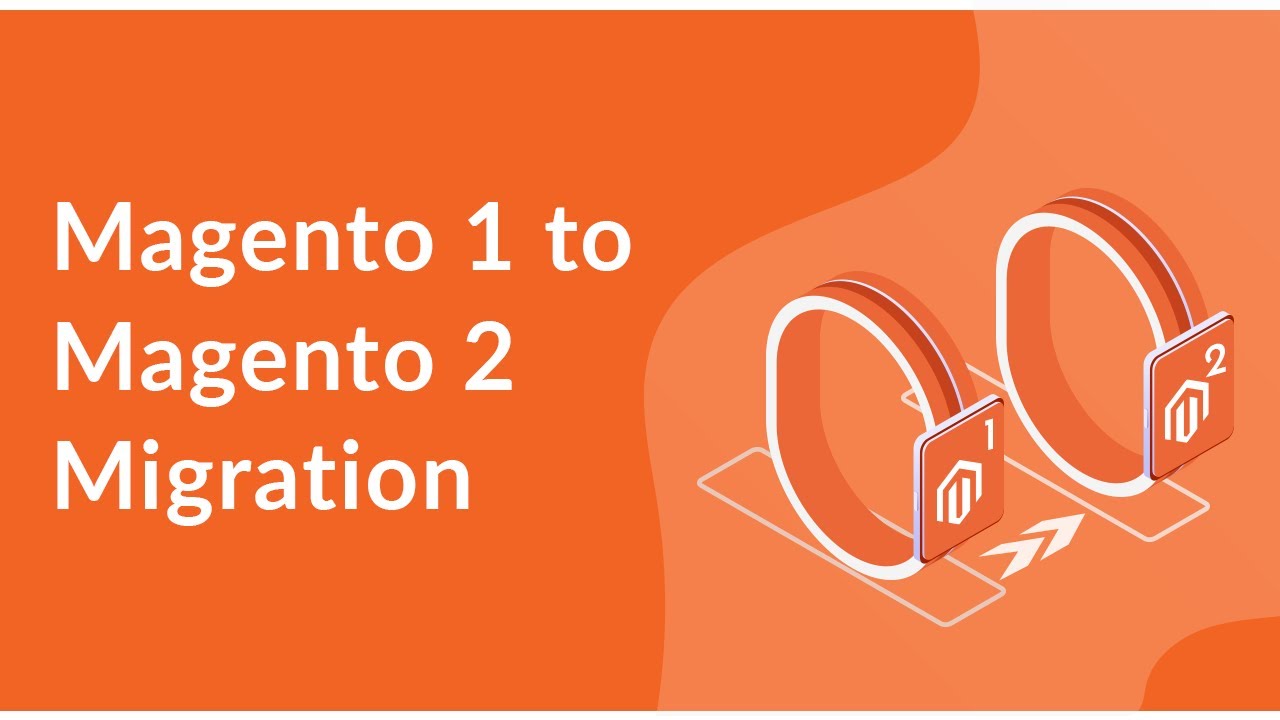
Why Migrate from Magento 1 to Magento 2
Magento announced End of Life for Magento 1 in June 2020. Previously this was set to November 2019 but a large number of merchants are still using Magento 1.x version so Magento support has decided to extend this and give more time for merchants to plan and take action on their plan to move to Magento 2.
Reasons to Migrate you Magento 1 to Magento 2
- Compatibility with PHP 7+
- Composer – A package dependency manager for PHP
- Supported MySQL & MySQL Percona
- Varnish – HTTP Accelerator used for Full Page Caching(FPC)
- Redis – Built-in compatibility with Redis for cache storage
- Elasticsearch – A well know, popular and widely used open-source search engine.
- jQuery – As a primary JS library
- CSS3 Less pre-processor
- RequireJS – This helps on-demand loading of JS files.
- HTML5 – Page HTML templates utilizes fetures of HTML5 tags.
- Coding standards – PSR-0 (autoloading standard), PSR-1 (basic coding standards), and PSR-2 (coding style guide), PSR-3, PSR-4
As a developer and solution architect what impressed me are Magento 2's coding standard and its design-pattern which makes it scalable to any extent.
New and enhanced e-commerce features introduced
There are many existing features rewritten from scratch to provide most of its usability. And they are designed to perform better than Magento 1 as they were having some limitations in Magento 1. Some of them are…
- Asynchronous loading of JavaScript improves page speed
- Built-in configurable swatches are available
- Fast add to cart via AJAX
- Product instant purchase feature
- Better, fast and responsive one-page checkout
- Admin area look & feel is more attractive, usable, responsive and fast.
- Advanced reports – Customizable
- Improved asynchronous re-indexing
- Fast search with Elasticsearch engine
- Built-in Page Cache & Varnish Full Page Cache support
- Built-in CSS and JavaScript minification
- Pages are optimized for SEO
- REST APIs & GraphQL APIs are available
- NewRelic Performance monitoring tool
Magento 2 has better page speed performance
According to many performance testing and performance comparison Magento 2 pages load 20% faster than the Magento 1 pages. Magento 2 is built on the latest technology stack that brings speed improvements.
Some studies also showed that Add To Cart and Checkout performance increased by 50% in Magento 2.
Enhanced application security in Magento 2
Magento 2 has introduced coding standards to follow for all the developers and maintainers which removes the possibility of vulnerability by custom coding or third party extensions.
Magento 2 supports a strengthened hashing algorithm for passwords.
Two Factor Authentication can be enabled for Magento 2 admin users. This is a third-party module that comes with Magento installation and works well with 4 providers(Google Authenticator, Authy, U2F Keys, Duo Security).
Preventing XSS: Magento 2 has built-in methods and filters to prevent XSS vulnerabilities. And also provided a guideline for the developers to use them to prevent the vulnerabilities.
Magento 2 opens the door for new e-commerce solutions
B2B eCommerce: Magento team has developed a separate module to provide B2B eCommerce solutions. This module has almost all the required built-in features for a B2B website. If your business offers B2B sales then this is the best feature for you.
REST API: Magento 2 has a powerful REST API that opens a door for third-party applications to integrate their services with Magento. It is well documented and quite easy to implement. It makes easy integration with ERP systems.
Magento Business Intelligence(BI): This feature enables you to acquire the insights on your data and let you analyze your top customers, products, sales data, and promotions to find new growth opportunities.
Enhanced API stack
REST (Representational State Transfer) and SOAP (Simple Object Access Protocol) APIs: These are the two supported APIs that cover almost all needed web services to integrate third-party systems.
GraphQL: This is a different API that is specially designed for the PWA application. Magento team is building a Vania storefront that uses GraphQL API. This is faster than REST and this is an asynchronous API.
Improved checkout user experience
The shopping experience in Magento 2 is faster as AJAX Add to Cart is used and the same was achieved in Magento 1 with the help of third-party extensions.
Checkout Page is designed in a way to provide the best user experience. It is responsive, fast and mobile-friendly. It uses AJAX for all the steps involved in the checkout so checkout page never reloads. And works as one step checkout.
The checkout page is built on UI components that make it fully customizable without core modifications.
Opens door for PWA storefront
Magento team is already working on its Vania Storefront which is a PWA specially designed for Magento 2.
Magento 2's APIs are so strong and cover almost all the areas that make it feasible to create a custom mobile application or PWA application without any customization to its core modules.
A well known VueStorefront PWA for eCommerce that is already used by many merchants for their Magento 2 stores.
Built-in Varnish FPC support
Varnish Cache is an open-source web application accelerator (also referred to as an HTTP accelerator or caching HTTP reverse proxy).
Varnish stores (or caches) files or fragments of files in memory; this enables Varnish to reduce the response time and network bandwidth consumption on future, equivalent requests.
It is strongly recommended to use Varnish in the production environment as it accelerates HTTP traffic.
Conclusion
Magento 2 comes with great features, security, performance, and scalability. I would recommend you to plan your upgrade as soon as possible. You can follow my next blog on how to plan for Migrating M1 to M2 which is coming soon.
Thanks for reading our article, please feel free to share your feedback, suggessions, and queries by adding a comment or write us at info@sprinix.com.








